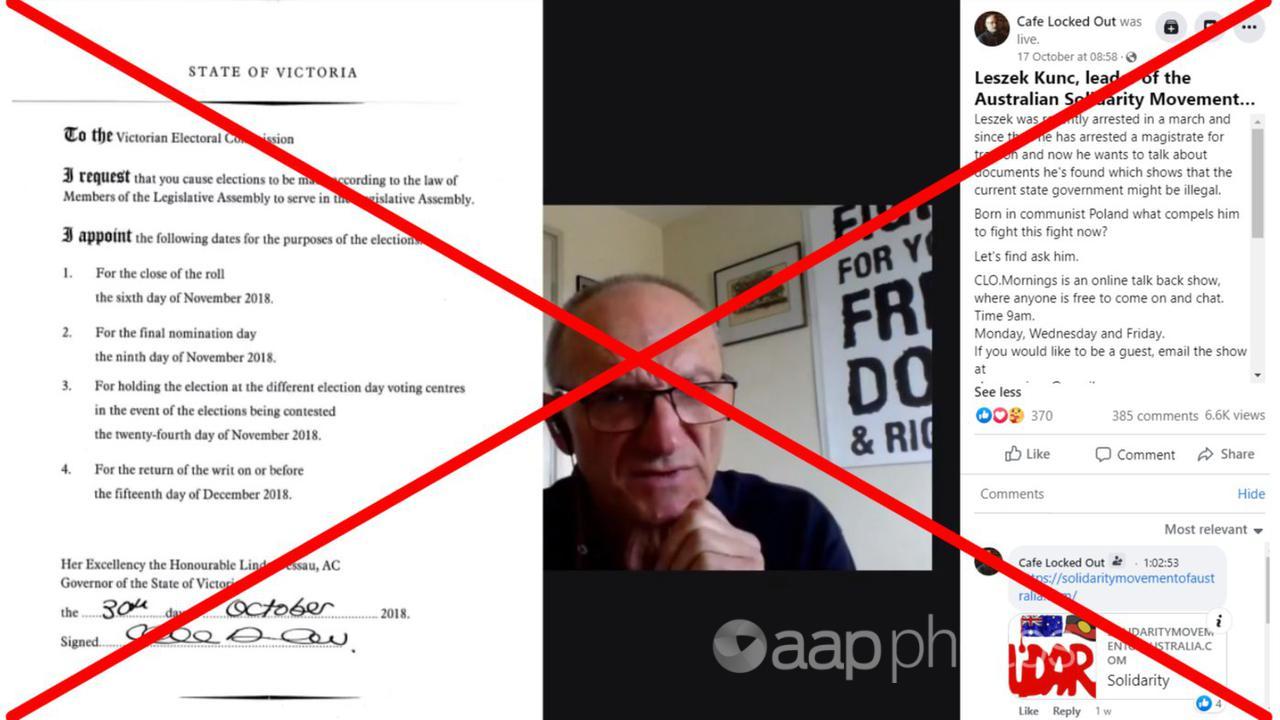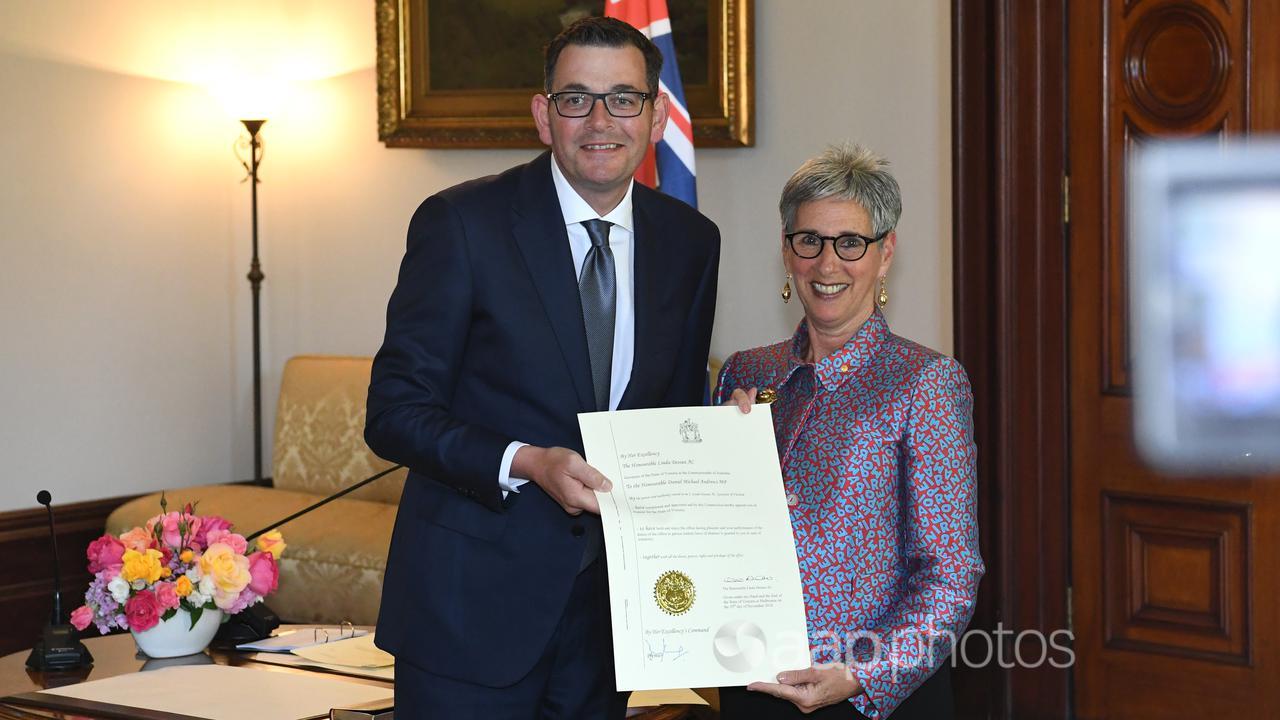A Facebook video claims the Victorian election in 2018 was illegal because the election writ was not marked with a seal of state.
The video (screenshot here) was posted on the Cafe Locked Out group’s page on October 17.
However, the state electoral authority and a legal expert told AAP FactCheck there is no requirement under Victorian law or any relevant acts for election writs to include a seal.
The claim is made by Solidarity Movement of Australia leader Leszek Kunc, who repeatedly points to copies of the writs in the video.
“As you can see, that writ was signed by (Victorian governor) Linda Dessau on the 30th of October, 2018. You can see there’s no logo, no state logo … that cannot be a legal document which decides our government,” Mr Kunc says (video mark 1hr 3min 35sec).

He goes on to say the “Great Seal of Victoria” does not appear anywhere on the 2018 state electoral writs, making the elected politicians “criminals” due to the unlawful nature of the poll.
The claim is false. An election writ does not require a seal of state in order to be approved by the state governor.
AAP FactCheck previously debunked a similar claim related to seals on election writs at the federal level. The same claim also appears on the Australian Electoral Commission’s disinformation register.
Although state election writs are the responsibility of the state governor, the state and federal writs fall under the same piece of legislation, the Commonwealth Electoral Act 1918. This legislation states the writ “shall be signed by the Governor of a State, the Governor-General or the Speaker, as the case requires”.
There is no mention of the writ requiring a seal to be legally binding.
The 2002 Electoral Act outlines the proper format for election writs in Victoria, stating the only mark of approval needed from the state governor is a signature.
The Victorian Electoral Commission (VEC) told AAP FactCheck the claim is false and will be added to its misinformation register.
“A seal is not required in the issuing of the writs for a state election,” a VEC spokeswoman said in an email.
“All that is required is the simple signature of the Governor of Victoria. This is clearly set out in Schedule 1 of the Electoral Act 2002, which sets out the form of the writ for an election.”

Graeme Orr, an Australian electoral law expert at the University of Queensland, also confirmed Victoria’s 2018 election writ was legitimate, saying no seals or other embellishments were needed.
“It merely has to be signed by the Governor. The Public Seal of Victoria is just a form of strong evidence that the document issued from the Governor or Crown. Very little must be done under that Public Seal,” he told AAP FactCheck in an email.
Professor Orr said official seals were “very old-fashioned technology” akin to wax seals and signet rings, and were rarely required to authenticate documents in modern times.
Very few procedures must be authenticated under the State Seal of Victoria, one of the rare exceptions being the appointment of the state governor.
In that case, the legislation states the appointment must take place “under the Public Seal of the State”, a specification that is not present in the laws governing electoral writs.
AAP FactCheck has previously addressed other claims from Cafe Locked Out see here and here.
The Verdict
The claim the 2018 Victorian state election was illegal because the election writ didn’t have a seal is false. There is no requirement for election writs to be marked with the seal of state by the governor.
A legal expert and the Victorian Electoral Commission told AAP FactCheck the 2018 election writ followed the correct form and was signed by the state governor, which is the only requirement to make it legitimate.
False – The claim is inaccurate.
* AAP FactCheck is an accredited member of the International Fact-Checking Network. To keep up with our latest fact checks, follow us on Facebook, Twitter and Instagram.
All information, text and images included on the AAP Websites is for personal use only and may not be re-written, copied, re-sold or re-distributed, framed, linked, shared onto social media or otherwise used whether for compensation of any kind or not, unless you have the prior written permission of AAP. For more information, please refer to our standard terms and conditions.


















